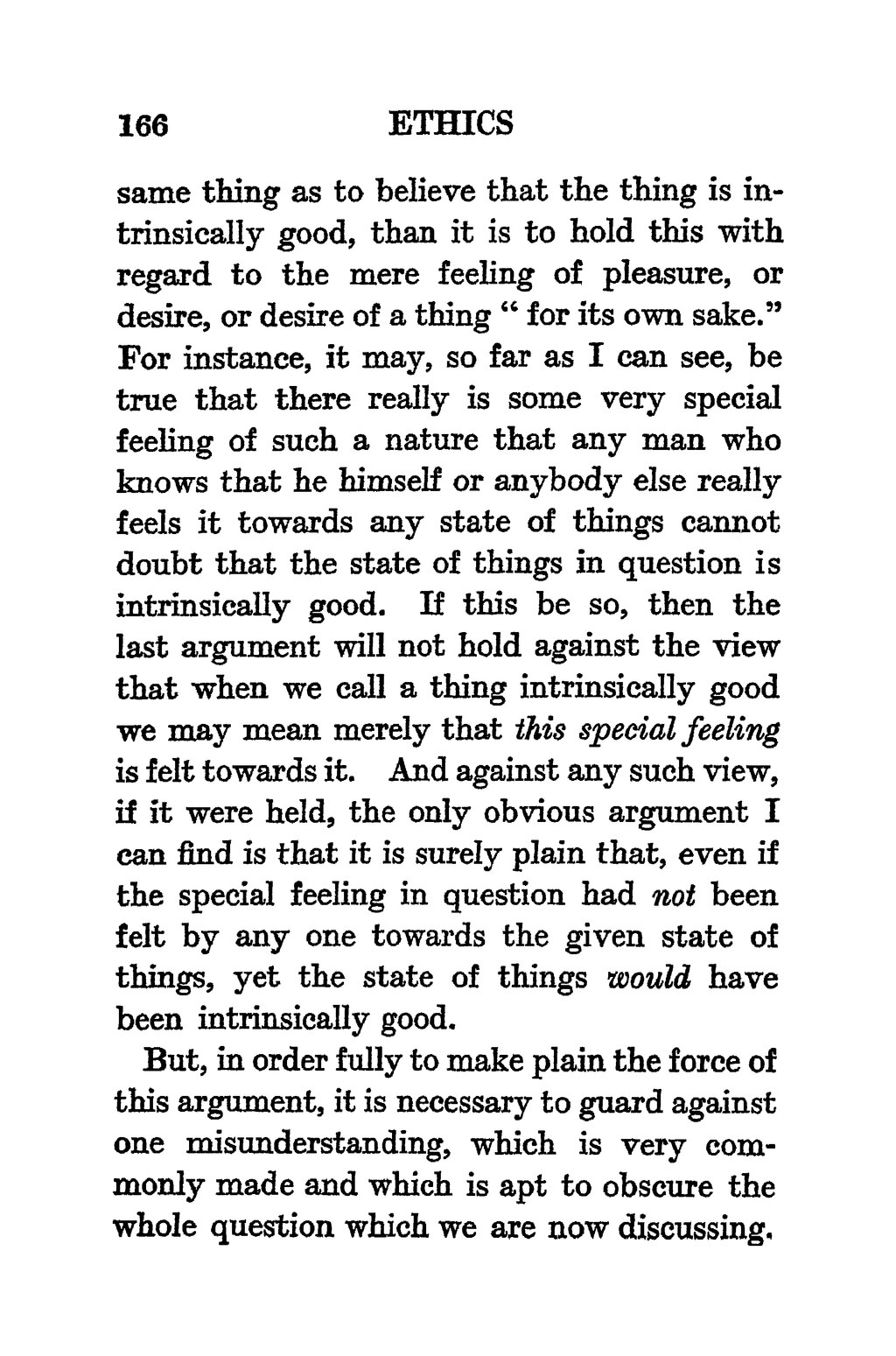same thing as to believe that the thing is intrinsically good, than it is to hold this with regard to the mere feeling of pleasure, or desire, or desire of a thing “for its own sake.” For instance, it may, so far as I can see, be true that there really is some very special feeling of such a nature that any man who knows that he himself or anybody else really feels it towards any state of things cannot doubt that the state of things in question is intrinsically good. If this be so, then the last argument will not hold against the view that when we call a thing intrinsically good we may mean merely that this special feeling is felt towards it. And against any such view, if it were held, the only obvious argument I can find is that it is surely plain that, even if the special feeling in question had not been felt by any one towards the given state of things, yet the state of things would have been intrinsically good.
But, in order fully to make plain the force of this argument, it is necessary to guard against one misunderstanding, which is very commonly made and which is apt to obscure the whole question which we are now discussing.
